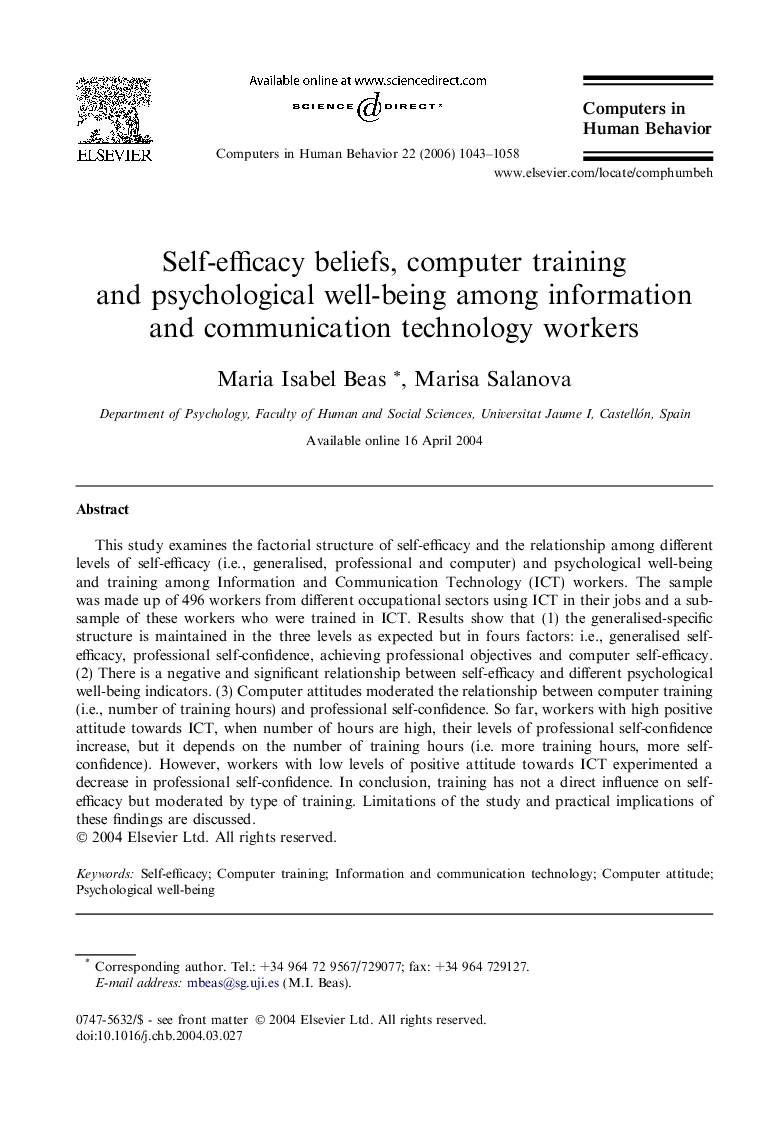| Article ID | Journal | Published Year | Pages | File Type |
|---|---|---|---|---|
| 352412 | Computers in Human Behavior | 2006 | 16 Pages |
This study examines the factorial structure of self-efficacy and the relationship among different levels of self-efficacy (i.e., generalised, professional and computer) and psychological well-being and training among Information and Communication Technology (ICT) workers. The sample was made up of 496 workers from different occupational sectors using ICT in their jobs and a subsample of these workers who were trained in ICT. Results show that (1) the generalised-specific structure is maintained in the three levels as expected but in fours factors: i.e., generalised self-efficacy, professional self-confidence, achieving professional objectives and computer self-efficacy. (2) There is a negative and significant relationship between self-efficacy and different psychological well-being indicators. (3) Computer attitudes moderated the relationship between computer training (i.e., number of training hours) and professional self-confidence. So far, workers with high positive attitude towards ICT, when number of hours are high, their levels of professional self-confidence increase, but it depends on the number of training hours (i.e. more training hours, more self-confidence). However, workers with low levels of positive attitude towards ICT experimented a decrease in professional self-confidence. In conclusion, training has not a direct influence on self-efficacy but moderated by type of training. Limitations of the study and practical implications of these findings are discussed.
